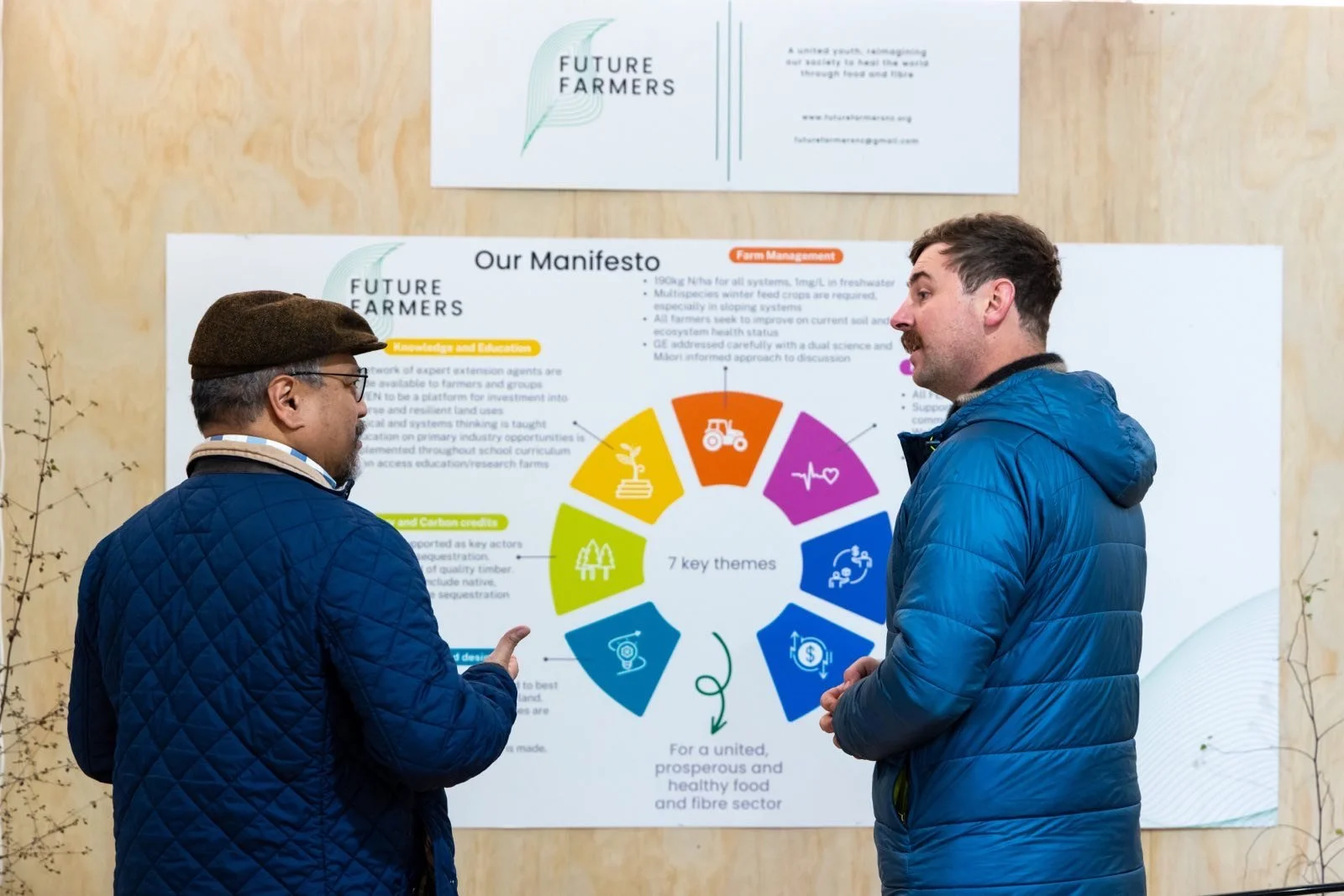
Our Policy Wishlist
These are our main policies we wish to see attention given to, ‘fleshed out’, and action taken on - a handful created and chosen, grounded in our Manifesto.
This document will continue to evolve alongside our Manifesto.
Every farm over 20ha must have a Farm Environment Plan (FEP) by year end 2024 including a purpose statement.
Create national carbon budget targets beyond neutrality by 2050. We must have climate positive (sequestering more emissions than we emit) targets for 2075,
2100, 2150 and 2200.Net methane emissions are cut in line with Climate Change Commission targets.
Emissions Trading Scheme (ETS) to recognise other on farm sequestration (e.g. soil carbon sequestration, wetlands) and align incentives for natives.
Foresters must have a plan to harvest exotic trees or transition them to natives after 40 years. Exotic trees can not be planted in perpetuity as carbon forests.
All farm compliance and reporting should be enabled through FEPs as part of single existing farm management software companies such as Farm IQ, Resolution, My Farm Enviro and Overseer.
A national fund is made available for catchment group restoration projects.
Create a platform for farmers and growers to access digestible scientific research via a web portal (as exemplified by the Data Supermarket).
Government increasingly enables ecological and food and fibre system literacy nationwide by building education programmes in schools and leveraging existing education initiatives. Primary industry education needs to transcend cultural boundaries, namely urban and rural.
30% effective protection and restoration of each unique biome/ecosystem in NZ by 2050.
Train / up-skill agricultural extension agents to present information around a variety of land use options, climate change, and other relevant challenges / opportunities with the goal to invest in diverse and resilient land use systems that are best suited for our landscapes - a balance between climate change adaptation, consumer trends, and what’s viable on our whenua; solutions-focused thinking rather than focusing on the negatives - Addressing the how, what AND why of change.
Establish open access, applied science educational farms.
It is essential that the nationwide conversation on genetic engineering is informed by the latest technical and social science with a Maturanga Māori lens.
New Zealand must develop and roll-out a rural mental health strategy and supporting
infrastructure, with both professional and community based support.Expand mechanisms to facilitate the uptake of natural fibres. Natural fibre tariffs should be removed globally via New Zealand-led trade negotiations, with disincentivising petroleum fibre pricing gradually introduced.
New Zealand should look for opportunities to add value to export markets on shore. For example supporting wool processing infrastructure and oat production.
Create a New Zealand domestic food strategy; stabilise food security by increasing localisation and accessibility of nutrient-rich food and fibre for all communities. Government investment and public incentives must be given for circular economy and relocalisation of supply solutions.
Empower people by encouraging and supporting capacity for polyculture farms close to urban centres.
De-regulate small scale local transactions that prevent innovation. Short supply chains promote resilience and diversification.
New Zealand needs robust competition in our supermarket/ grocery industry alongside the opportunity for small scale producers to sell into local markets.
The import of food and fibre products must meet New Zealand animal welfare and environmental standards without breaching free trade agreements. We shouldn’t be sending our externalities overseas.
New Zealand should mandate the purchase of biodiversity credits under the Emissions trading scheme.

